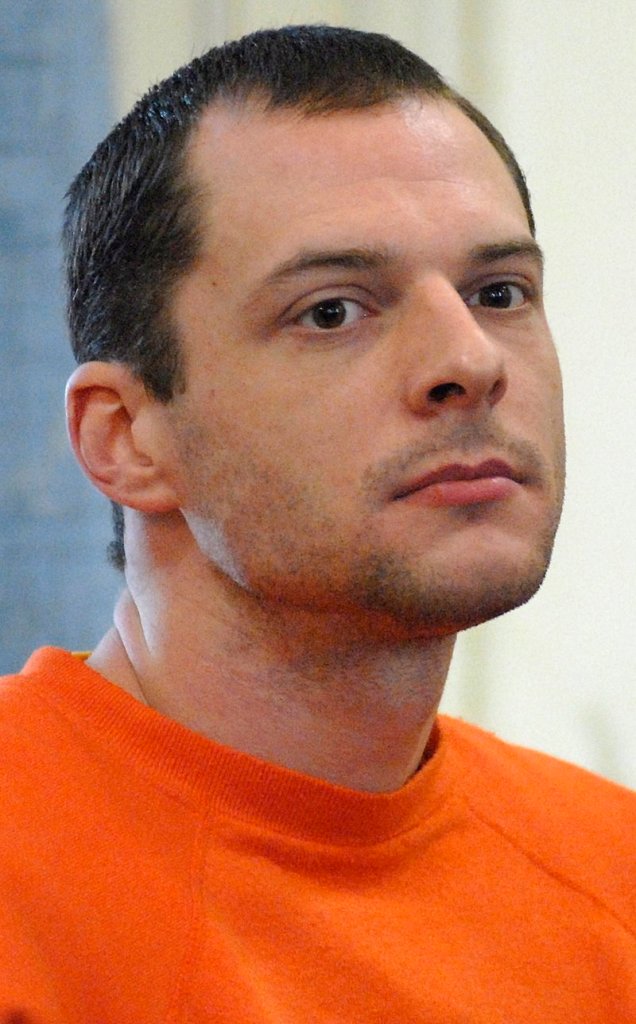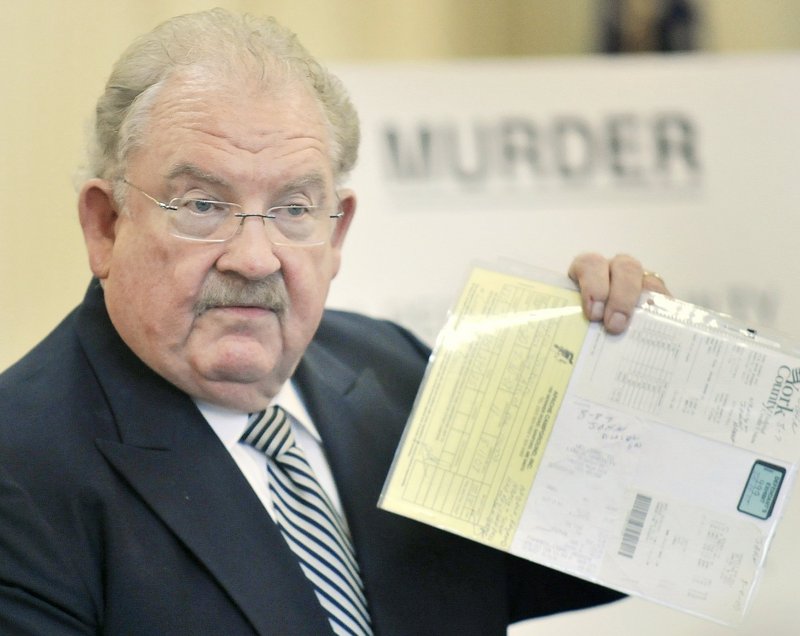ALFRED — Jason Twardus launched his effort to win a new trial in York County Superior Court on Thursday, introducing evidence that his attorneys say implicates Kelly Gorham’s landlord, John Durfee, who has been embroiled in a series of legal problems since the trial.
Twardus, 29, of Rochester, N.H., was convicted in October of strangling Gorham, his ex-fiancee, in August 2007 and then burying her body on land his father owned in northern New Hampshire.
Throughout the three-week trial, defense attorney Daniel Lilley suggested that Durfee was a suspect who had sought to frame Twardus.
On Thursday, Lilley called witnesses who said Durfee knew Twardus’ father owned land in northern New Hampshire and knew Gorham was buried there before her body had been found.
Deputy Attorney General William Stokes said the shreds of conversation recalled three years after the murder do not change the “overwhelming weight of evidence” that Twardus killed his 30-year-old ex-fiancee. Twardus was videotaped in New Hampshire at the time the body was being disposed of there and lied about his whereabouts then and at other times central to the case, Stokes said.
Twardus appeared in court wearing a black suit and white button-down shirt. Only his orange sneakers and the chrome chain connecting his ankles signaled that he remains in York County Jail awaiting a sentence of 25 years to life for murder.
Gorham’s family resumed their place in the front row of the gallery. Her mother, Pauline Gorham, was in good spirits.
“My thinking is John (Durfee) felt from the beginning that Jason did it and if Jason did do it, where would he put the body, and that’s New Hampshire where he was from,” Gorham said. She said the jury made the right decision and she does not want to sit through another trial.
Thursday’s hearing before Justice G. Arthur Brennan included testimony from new witnesses whom Twardus’ attorneys had been unaware of during the trial.
Charity Camire, a case manager with Maine Pretrial Services, testified that she spoke with Durfee while he was in jail in 2007, after Gorham disappeared but before her body was found. Durfee told her there were two other possible suspects and that the father of one, an ex-boyfriend, “had land in New Hampshire and he bet that’s where they would find her,” she said.
Camire said she thought Durfee had said the land was in northern New Hampshire. She said she called police to report the comment and asked for the detective investigating the Gorham case.
She recalled speaking with an officer, but felt he wasn’t giving her his full attention – he was ordering coffee while she spoke with him on the phone, she said. The officer said police were familiar with Durfee, she said.
Michael Zabarsky, the primary Maine State Police detective on the case, testified later that he did not recall speaking to Camire, there was no reference to her in his case notes and the state police regional communication center in Gray had no record of her calling.
Lilley said he will try to secure a record of the call from U.S. Cellular or from the phone records of Maine Pretrial Services. Zabarsky said he will try to find out whether police received any calls from her phone number.
If evidence shows Camire alerted police to Durfee’s statements and that information wasn’t shared with Twardus’ attorneys, that would be a major prosecutorial infraction that could result in a new trial, Lilley said.
John Durfee testified Thursday, as he did during the trial, that he did not know Twardus’ father owned land in northern New Hampshire. Lilley said the contradiction shows Durfee was not forthright with investigators and that he could have been the one to dispose of Gorham’s body.
Elaine Plourde, a corrections officer at the York County Jail, testified that Durfee was brought into jail on a probation violation after Gorham disappeared but before her body was found, and that he knew where the “burial ground” was.
Under questioning by Stokes, Plourde said Durfee never mentioned Gorham’s name in connection with the burial ground comment and that he was apparently high on drugs, observing that aliens were flying around in his cell and that he could fly.
But Lilley also called Geneva Hersom, who works as a hairdresser where Plourde sometimes gets her hair styled, who said that when Plourde told the story at the beauty shop, she said Durfee did mention Gorham by name.
Lilley has said that if Durfee knew Gorham was buried in northern New Hampshire before her body was found – which he could not have known unless he was involved in her killing – that supports Twardus’ argument for a new trial.
Lilley also questioned Durfee and his wife, Nancy Durfee, about their recent brushes with the law. Both were charged with possessing PCP after they were arrested March 10. The state withdrew charges against Nancy Durfee, even though she refused to answer some questions, citing her Fifth Amendment right against self-incrimination.
John Durfee also was charged with eluding police in connection with an Oct. 13 incident in which Nancy Durfee wound up unconscious on an Eliot lawn with minor injuries while the car she had been riding in left the scene. Police say they chased John Durfee and later arrested him.
Nancy Durfee has since said that John Durfee wasn’t driving and that they did not fight just before she ended up on the lawn. Instead, she said she had loaned her car to a homeless person.
But Lilley was able to introduce statements that Nancy Durfee made to police that night in which she said she had fought with her husband and that he was driving. Lilley also introduced medical records that showed she tested positive for PCP, although she denies ever using the drug. She said it must have gotten into her bloodstream through second-hand exposure.
“Would you cover up for your husband no matter what he did? Would you lie for him?” Lilley asked. After a moment’s hesitation, she replied, “No.”
Nancy Durfee’s credibility is critical, Lilley said, because she identified the blanket that was found with Gorham’s body as one from her apartment.
Lilley and Stokes now have two weeks to submit written arguments on the motion for a new trial, which will be followed by a hearing in early May.
Staff Writer David Hench can be contacted at 791-6327 or at:
dhench@pressherald.com
Send questions/comments to the editors.




Success. Please wait for the page to reload. If the page does not reload within 5 seconds, please refresh the page.
Enter your email and password to access comments.
Hi, to comment on stories you must . This profile is in addition to your subscription and website login.
Already have a commenting profile? .
Invalid username/password.
Please check your email to confirm and complete your registration.
Only subscribers are eligible to post comments. Please subscribe or login first for digital access. Here’s why.
Use the form below to reset your password. When you've submitted your account email, we will send an email with a reset code.